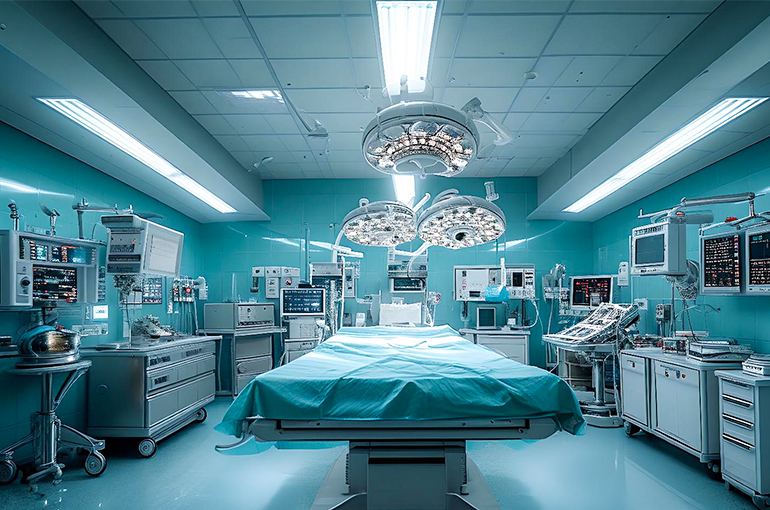 China's Medical Device Makers Pivot to Premium Products Amid Industry Slowdown
China's Medical Device Makers Pivot to Premium Products Amid Industry Slowdown(Yicai) Dec. 27 -- Chinese medical device manufacturers are shifting toward premium product development as profit margins decline due to reduced hospital procurement following last year's extensive anti-corruption campaign.
China's medical device market contracted 8 percent year-on-year in the first half of this year due to falling demand, according to industry data provider MDDI.
Amid fewer hospital tenders, suppliers are increasingly engaging in price competition to maintain market share, an industry professional told Yicai. Companies with limited product portfolios are particularly vulnerable, the source added.
The impact is evident in listed companies' performance. Among 40 mainland-listed medical device manufacturers, 27 reported declining gross margins in the first three quarters, with seven companies experiencing drops exceeding five percentage points.
Premium Strategy
Some companies are navigating the downturn by focusing on high-end products. The medical device sector is traditionally knowledge-intensive, characterized by high technological barriers, extended research and development cycles, and substantial profit margins, according to an insider at SonoScape Medical, a developer of ultrasound and endoscopy solutions.
To avoid price wars, companies must upgrade their offerings, specialize their product lines, and actively develop new products with high technological barriers and significant market potential.
SonoScape has increased its R&D investment to create a bigger lineup of more sophisticated products and expanded its advanced R&D team. The insider noted this approach is essential for rapid recovery after the "cold winter" while introducing new premium products over the next three to five years.
Industry leaders are also pursuing international expansion. Hospital equipment manufacturer Mindray Medical International plans to establish teams in major overseas markets, including after-sales and clinical service units, an executive revealed during the Shenzhen-based company's third-quarter earnings call. Mindray's R&D engineers will also travel abroad to better understand international customers' needs.
Trade-in Policy
Amid challenging market conditions, the medical device trade-in policy promoted by the State Council is expected to stimulate medium and short-term demand, particularly benefiting industry leaders. The policy offers subsidies to encourage hospitals to replace outdated devices with new ones.
The program primarily targets medical imaging equipment, according to a source from SonoScape. The company’s staff will closely monitor project developments across China to drive sales, the source added.
Hospital tenders are anticipated to recover rapidly, bolstered by the program, China Post Securities noted in a recent research report. The tenders for ultrasound products, computed tomography scanners, magnetic resonance imaging devices, digital radiography equipment, endoscopes, and surgical robots are expected to see a significant rebound, the report predicted.
Editors: Tang Shihua, Emmi Laine